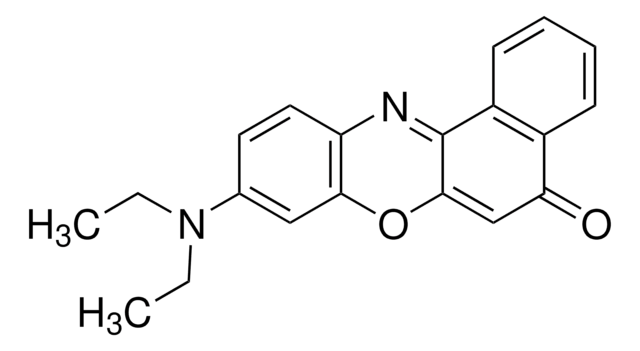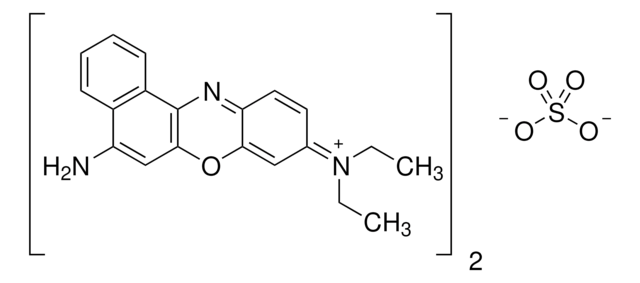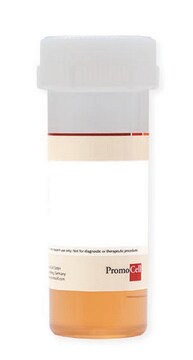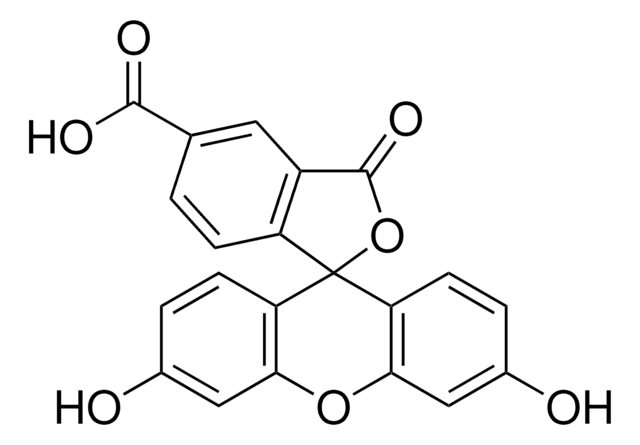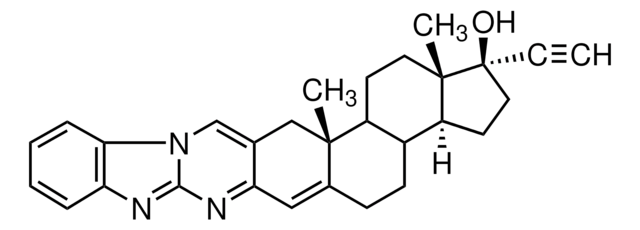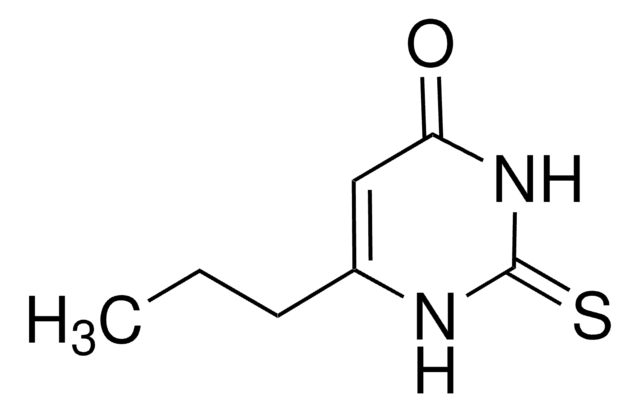C3118
CPNQ
≥98% (HPLC), solid
Synonyme(s) :
5-[4-(4-chlorobenzoyl)-1-piperazinyl]-8-nitroquinoline, B2
About This Item
Produits recommandés
Pureté
≥98% (HPLC)
Forme
solid
Couleur
brown
Solubilité
H2O: insoluble <2 mg/mL
DMSO: >5 mg/mL
Température de stockage
2-8°C
Chaîne SMILES
[O-][N+](=O)c1ccc(N2CCN(CC2)C(=O)c3ccc(Cl)cc3)c4cccnc14
InChI
1S/C20H17ClN4O3/c21-15-5-3-14(4-6-15)20(26)24-12-10-23(11-13-24)17-7-8-18(25(27)28)19-16(17)2-1-9-22-19/h1-9H,10-13H2
Clé InChI
KLNPVNZJCWIQSK-UHFFFAOYSA-N
Actions biochimiques/physiologiques
Autres remarques
Mention d'avertissement
Danger
Mentions de danger
Conseils de prudence
Classification des risques
Acute Tox. 3 Oral - Eye Irrit. 2 - Skin Irrit. 2 - STOT SE 3
Organes cibles
Respiratory system
Code de la classe de stockage
6.1C - Combustible acute toxic Cat.3 / toxic compounds or compounds which causing chronic effects
Classe de danger pour l'eau (WGK)
WGK 3
Point d'éclair (°F)
Not applicable
Point d'éclair (°C)
Not applicable
Équipement de protection individuelle
Eyeshields, Faceshields, Gloves, type P2 (EN 143) respirator cartridges
Certificats d'analyse (COA)
Recherchez un Certificats d'analyse (COA) en saisissant le numéro de lot du produit. Les numéros de lot figurent sur l'étiquette du produit après les mots "Lot" ou "Batch".
Déjà en possession de ce produit ?
Retrouvez la documentation relative aux produits que vous avez récemment achetés dans la Bibliothèque de documents.
Notre équipe de scientifiques dispose d'une expérience dans tous les secteurs de la recherche, notamment en sciences de la vie, science des matériaux, synthèse chimique, chromatographie, analyse et dans de nombreux autres domaines..
Contacter notre Service technique